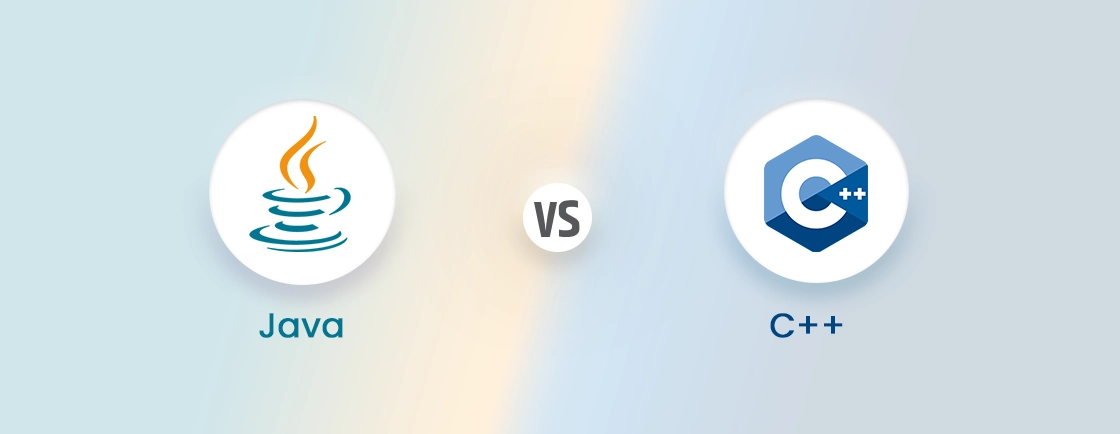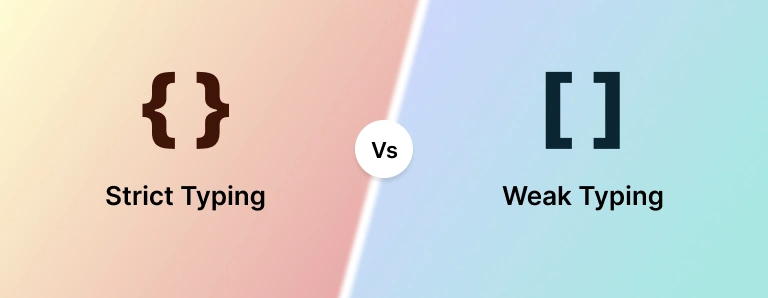Table of Contents
When creating a high-quality eCommerce website, selecting the right platform is a pivotal decision that can significantly impact the success of your venture. Although there are several options, two of the most prominent eCommerce platforms used in the web development services are Shopify and WordPress.
Both platforms offer powerful tools to sell products, but their strengths and weaknesses diverge significantly. Shopify is renowned for its user-friendly approach and dedicated eCommerce focus, but you can expand the capabilities of WordPress by installing a plugin like WooCommerce.
Through this blog, I’ll cover Shopify and WordPress, along with their features and key differences. And I’ll show how you can choose amongst them. Let’s begin.
Overview of Shopify
Shopify is an all-in-one commerce platform designed to empower businesses of all sizes to start, grow, and manage their online stores. From solopreneurs to established brands, Shopify provides a user-friendly interface, robust features, and a vast ecosystem to equip you for eCommerce success.
- User-friendly Interface: No coding required! Shopify’s drag-and-drop interface makes building and customizing your online store a breeze, even for tech novices.
- Diverse Theme Library: Choose from hundreds of professionally designed themes, free and premium, to create a unique look and feel for your brand.
- Powerful Integrations: Expand your reach and functionality with the Shopify App Store, boasting over 6,000 apps for marketing, shipping, customer service, and more.
- Seamless Payment Processing: Shopify Payments handles all your transactions securely, eliminating the need for third-party payment gateways.
- Comprehensive Sales Channels: Sell across multiple channels, including your website, social media, online marketplaces, and even in-person with Shopify POS.
- Scalability for Growth: As your business flourishes, Shopify scales with you, offering robust plans to accommodate increasing traffic and sales volume.
In essence, Shopify offers a combination of user-friendly design, e-commerce-focused features, scalability, and a vibrant app ecosystem. That makes it a robust and versatile platform for businesses looking to thrive in the competitive world of online retail.
Plus, Shopify boasts a 99.99% uptime and industry-leading security measures. So, your store runs smoothly and customer data stays protected. Plus, you get 24×7 customer support via phone, live chat, and email.
If you’re already sold on Shopify, then I suggest you consider hiring a Shopify development company. But if you would like to opt for WordPress instead, this next section is for you.
Overview of WordPress
WordPress isn’t just a blogging platform anymore; it’s one of the best CMS, capable of building virtually any type of website imaginable. Unlike Shopify’s closed ecosystem, WordPress offers an open-source, highly customizable framework. So you can easily create a unique online presence with unmatched flexibility.
- Unmatched Flexibility: Build anything from blogs and portfolios to full-fledged online stores and dynamic membership sites with custom plugins and themes.
- Themes and Plugins: For a good design and layout, you can opt from a vast library of free and premium themes. And if you want to integrate features and functionalities in your website, you can choose the best WordPress plugin.
- SEO Friendly: WordPress’s clean code structure and built-in optimization tools make it SEO-friendly, helping your website climb the search engine rankings.
- Cost-Effective: While WordPress itself is free, you need to choose your own hosting and domain, offering budget-friendly options for startups and solopreneurs.
- Content Freedom: Edit, delete, and publish content with ease using the intuitive Gutenberg editor, giving you complete control over your website’s narrative.
WordPress shines for content creators and bloggers looking for complete control on their brand and website. The extensive customizations ensure endless possibilities for a website. So if you would like to use WordPress for your website, hiring dedicated WordPress developers would be great.
When it comes to creating eCommerce websites through WordPress, the best plugin is WooCommerce. Comparing WooCommerce with Shopify, while the former wins on customizability and cost, the latter comes above on ease of use and scalability.
If you’re still confused between Shopify and WordPress, the comparison table in the next section is what you need.
Shopify vs WordPress: Comparison Table
| Factor | Shopify | WordPress |
|---|---|---|
| Shopify | WordPress | |
| Type of Platform | Dedicated to eCommerce | Content Management System |
| Ease of Use | Very easy, drag-and-drop interface | Can be easy, but requires some technical knowledge for full customization |
| Themes/Templates | Professional designs, mostly paid, limited free options | Wide variety of free and paid themes, highly customizable |
| Plugins/Extensions | Wide range of ecommerce-specific plugins available | Vast library of plugins for various functionalities, not all ecommerce-focused |
| Cost | Monthly subscription fees (from $29 to $299) | Free software, but requires separate hosting and domain costs |
| Scalability | Highly scalable, designed for large businesses | Scalable, but may require plugin or development intervention for complex needs |
| Security | Managed platform with built-in security features | Requires plugins and maintenance for optimal security |
| SEO | Good SEO features, but not as customizable as WordPress | Highly customizable, requires plugin and optimization knowledge |
| Blogging | Basic blogging features | Powerful blogging platform with rich features and community support |
Comprehensive Difference Between Shopify and WordPress
Although both these platforms can help create high-quality eCommerce websites, they cater to different strengths and weaknesses. There are some differences between them based on a variety of factors.
Ease of Use
Shopify is renowned for its exceptional ease of use, making it an attractive option for beginners and those without extensive technical knowledge. The platform provides a streamlined and intuitive interface that guides users through the process of setting up and managing an online store.
The key elements of Shopify’s user-friendliness include the user-friendly dashboard, simple setup process, and an intuitive design editor. There are also built-in features for eCommerce, including inventory management, order processing, and payment gateways.
On the other hand, WordPress, the underlying platform for WooCommerce, is known for its user-friendly nature. However, WooCommerce may require a slightly steeper learning curve compared to Shopify, especially for users new to WordPress.
The key points contributing to the ease of use of this platform include a familiar WordPress admin dashboard and an intuitive design.
Verdict: Shopify takes the cake for user-friendliness. If you’re new to the ecommerce game, Shopify’s hand-holding will guide you smoothly.
Customization
Shopify provides a good level of customization options, allowing users to tailor the look and feel of their online stores to align with their brand identity. The key aspects of customization in Shopify include the themes, liquid templating language, theme editor, and app integrations.
On the flip side, WooCommerce, being a plugin for WordPress, provides an extensive range of customization options. Users can leverage the flexibility of WordPress through themes and plugin ecosystems, code customization, page builders, and more.
Verdict: WordPress wins for customization. If you’re a creative soul who wants your store to reflect your unique vision, WordPress is your playground.
Scalability
Shopify is renowned for its scalability, making it a preferred choice for businesses of various sizes, from startups to enterprise-level operations. This platform offers a range of plans to accommodate businesses at different stages of growth.
As a hosted solution, Shopify takes care of server management. This means that users don’t need to worry about the infrastructure. So Shopify can efficiently allocate server resources based on demand.
However, WordPress requires more attention to certain factors for optimal performance, like hosting quality, plugin management, caching, server resources, and more. Plus, you can choose a WordPress hosting provider that can handle increased traffic and maintain peak performance effectively.
Unlike Shopify, WooCommerce users have more control over their server resources. That can be an advantage but also requires responsible management to ensure scalability.
Verdict: Shopify takes the crown for scalability. If you envision your store becoming an ecommerce empire, Shopify’s infrastructure will support your ambitions.
Security
Shopify prioritizes security and provides a secure environment for online stores. It complies with Level 1 PCI Data Security Standard (DSS), which is the highest level of security certification for payment processing. So the customer info is handled with utmost security.
As a hosted solution, Shopify takes care of hosting security. The platform employs industry-standard encryption protocols (SSL) to protect data during transit and provides secure, reliable hosting to prevent security vulnerabilities. Plus, there are regular security updates and fraud prevention tools for a secure online shopping environment.
On the other hand, security in WordPress depends on factors like hosting quality and user practices. A reputable hosting provider with robust security measures is essential to prevent vulnerabilities. Plus, although plugins can help extend functionality, make sure you install them from trusted sources.
Also, With WordPress, users need to stay vigilant and apply updates promptly to protect against potential security risks.
Verdict: Shopify wins again for security. If peace of mind is your top priority, Shopify’s managed platform takes the worry out of online threats.
SEO
With Shopify, the users can customize title tags and meta descriptions for products, collections, and pages, improving the click-through rates. This platform automatically generates clean and SEO-friendly URLs for products and pages. It can also generate XML sitemaps for stores, making it easier for search engines to crawl and index the site’s content.
And all Shopify themes are designed to be mobile-responsive, contributing to a positive SEO ranking factor.
WordPress offers SEO plugins like Yoast SEO or All in One SEO Pack to enhance on-page SEO elements, including title tags, meta descriptions, and XML sitemaps. You can create content-rich product pages and blog posts for higher search rankings. And this platform makes sharing products on social media easier for better visibility and traffic.
WordPress offers a vast library of plugins that can be used to implement advanced SEO strategies, such as schema markup, rich snippets, and additional on-page optimization.
Verdict: WordPress edges out Shopify for SEO. If you’re a search engine optimization whiz, WordPress gives you the tools to outrank your competitors.
Cost
The core of Shopify’s cost comes in the form of monthly subscription fees, ranging from $29 to $299. The price tier depends on features like product uploads, storage space, staff accounts, and advanced reporting. While Shopify Payments eliminates the need for a third-party payment gateway, it charges a transaction fee of 2.9% + 30 cents per online sale.
On the contrary, WordPress is free and open-source. But the cost of WordPress website development includes other factors as well, like domain name, hosting, themes and plugins, and more.
While WordPress offers a wide range of free themes, users may opt for premium themes for more advanced customization options. Premium themes are typically one-time purchases.
Verdict: WordPress wins for cost. If you’re budget-conscious, WordPress offers a more affordable entry point, although premium plugins can add up.
Final Verdict
Choose Shopify if:
- You’re a beginner with no technical expertise.
- You prioritize ease of use and a guided setup process.
- You plan to scale your store rapidly.
- Security is your top concern.
- You’re primarily selling physical products.
Choose WordPress (with WooCommerce) if:
- You’re tech-savvy and comfortable with some configuration.
- You crave extensive customization and flexibility.
- You’re on a budget and want a more affordable entry point.
- You prioritize SEO and blog integration.
- You sell digital products or require unique functionalities.
Ultimately, the best platform is the one that aligns with your specific needs, skills, and budget. Take your time, do your research, and choose the tool that empowers your online store to flourish.
To Summarize
Two of the best platforms for creating eCommerce websites are Shopify and WordPress (with WooCommerce). Each platform boasts unique strengths and caters to different types of users and needs.
Shopify is known for its ease of use, drag-and-drop interface, and pre-built themes, making it perfect for beginners and those who prioritize a quick and guided setup. WordPress, on the other hand, offers unmatched flexibility and customization with thousands of themes and plugins. So it’s ideal for those seeking total control over the store’s design and functionality.
Whether you want your eCommerce store created with Shopify or WordPress, hire eCommerce developers with us today!
FAQs on Shopify vs WordPress
Which platform is better for beginners, Shopify or WordPress?
For beginners, Shopify is generally easier to set up and use. It has a user-friendly interface and includes built-in e-commerce features, making it a more straightforward option for those new to building online stores. However, WordPress offers more customization options and flexibility for advanced users.
Can I sell physical and digital products on both Shopify and WordPress?
Yes, both Shopify and WordPress have the capability to sell both physical and digital products. However, Shopify has built-in features specifically for selling physical products, while WordPress may require additional plugins for more complex e-commerce needs.
Can I integrate third-party apps and services with both Shopify and WordPress?
Yes, both platforms allow for the integration of third-party apps and services to enhance the functionality of your online store. Shopify has its own app store, while WordPress has a variety of plugins available for integration.
Compare the best tech side by side.
Our in-depth comparisons help you see features, pros & cons, and choose the right tools confidently.





